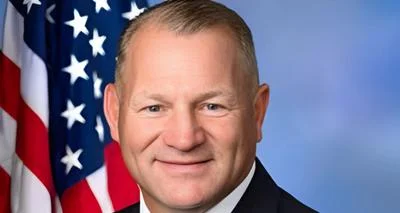The FY2017 Defense Appropriations bill keeps faith with the Budget Control Act defense spending cap, and does not include expected requests for increases in defense funding. Unlike the House-passed version from June 2016, it does not include an OCO-to-base transfer, which would have created a funding shortfall for troops serving in harm’s way. It does include extra OCO funding to pay for a 2.1% pay raise included in the 2017 National Defense Authorization Act.
2016 enacted level, base: $514.1 billion
2016 enacted level, OCO: $58.6 billion
2017 budget request, base: $517.7 billion
2017 budget request, OCO: $58.6 billion
2017 conference agreement, base: $516.1 billion
2017 conference agreement, OCO: $61.8 billion
Highlights and Key Points:
* $132.1 billion for Military Personnel and operational support costs, including $1.6 billion above President Obama’s FY2017 budget request to increase end strength by 24,000 active and 12,000 from the selected reserve.
* For Operations & Maintenance, $167.6 billion for base requirements, which is $3.7 billion below the request and $118.1 million above the FY2016 enacted level, and $47.7 billion for OCO requirements.
* For Procurement, $108.4 billion for base requirements, which is $6.5 billion more than President Obama’s FY2017 request and $2.4 billion less than the FY2016 enacted level, and $9.4 billion for OCO requirements.
* For Research and Development, $72.3 billion for base requirements, which is $2.5 billion more than the FY2016 enacted level, and $406.7 billion for OCO requirements.
* The bill increases military pay by 2.1 percent, consistent with the FY2017 National Defense Authorization Act (NDAA).
* $6.734 billion for cyberspace operations, which is $992 million more than the FY2016 enacted level and equal to President Obama’s FY2017 request.
* $1.014 billion for Congressional directed medical research programs.
* $600.7 million for the Israeli Missile Defense Cooperative program, which is $113 million more than the FY2016 enacted level and $454.9 million more than the President’s request. Additionally, $42.5 million is provided for anti-tunneling technology, which is $2.5 million more than the FY2016 enacted level.
* The bill fully funds the European Reassurance Initiative to assure NATO allies and other partners of our commitment to regional security and countering Russian aggression.
* $250 million, which was not in the President’s request, for the Rapid Innovation Fund to incorporate small business developments into DoD programs.
* $296 million for sexual assault prevention and response, which is $25 million above the request for the Special Victims’ Counsel programs within the military services.
* The bill prohibits funding to propose, plan for, or execute a new BRAC round.
* The bill prohibits funding to transfer or release Guantanamo Bay detainees to the U.S.; for construction, acquisition, or modifying facilities in the U.S. to house detainees; for transfer of detainees except in accordance with FY2016 National Defense Authorization Act; or to close or transfer Guantanamo Bay from DoD’s jurisdiction.
Source: U.S. Department of HCA








